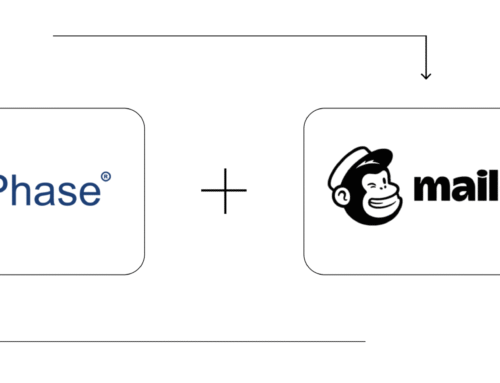The Subscription Model: How to Build Stable, Recurring Revenue for Your Repair Shop

Introduction
The traditional repair business model is a constant grind. You’re always on the hunt for the next customer, hoping for a busy week and dreading a slow one. This “feast or famine” cycle makes it nearly impossible to plan for the future, invest in your business, or even take a proper vacation.
But what if you could change that? What if your business had a stable, predictable flow of income every single month, regardless of how many new customers walk through your door?
This isn’t a pipe dream—it’s the power of the subscription model. By selling recurring service contracts, you can transform your business from a reactive repair service into a proactive, trusted partner. You move from a one-time transaction to a long-term relationship, and in doing so, you build a foundation for sustainable growth and peace of mind.
The Problem with the One-Time Fix Model
While essential, the transactional model has some major drawbacks:
-
Unpredictable Income: Your revenue is entirely dependent on who walks in the door and what breaks. This makes budgeting and financial planning incredibly difficult.
-
Lack of Loyalty: A customer who comes in for a one-time screen repair might go to a competitor next time if they find a better price. There’s nothing tying them to your business.
-
Wasted Marketing Efforts: You have to constantly be marketing to find new customers. This is far more expensive and time-consuming than retaining existing ones.
The Subscription Blueprint: A Guide to Recurring Revenue
Implementing a subscription model might seem daunting, but it’s a straightforward process that can be tailored to any size of computer service and repair shop.
Step 1: Define Your Tiers (Cater to All Needs)
A one-size-fits-all model won’t work. Create tiered plans that offer different levels of service.
-
Bronze Tier (For Individuals): Focus on basic, proactive maintenance. This could include a yearly software check-up, a discounted rate on parts, and a priority line for support.
-
Silver Tier (For Small Businesses): This is a powerful upsell. Offer proactive IT maintenance, remote assistance, and discounts on
in home computer repairservices for their entire office. This is essentially selling them a small-scaleIT service contracts. -
Gold Tier (For Power Users/Businesses): Offer comprehensive on-demand support, unlimited
remote computer repairand maintenance, and a clear guarantee on all repairs. This is your highest-margin tier.
Step 2: What to Include (Sell Peace of Mind)
Your customers aren’t just paying for a computer repair cost; they’re paying for peace of mind. Here are some high-value services to include in your tiers:
-
Proactive Maintenance: A yearly or bi-yearly system tune-up to prevent future problems. This is a low-cost, high-value service.
-
Antivirus & Software Updates: Offer to manage and install antivirus software and crucial operating system updates. This is a huge selling point for non-technical customers.
-
Discounts on Parts & Labor: Offer a 10% or 15% discount on all future repairs. This incentivizes them to come back to you.
-
Priority Service: Tell your subscribers they get to skip the line. When they have a broken device, they can come in immediately.
Step 3: Pricing for Success
Pricing a subscription model is a balancing act. It needs to be low enough to be a no-brainer for the customer but high enough to be profitable for you.
-
Cost-Per-Year Analysis: Calculate the total cost of parts and labor for an average customer over a year. Your subscription should be slightly higher than this, so you can make a profit.
-
Sell Value, Not Features: When you’re on the
repair desk, don’t just list the features of the subscription. Talk about the benefits: “For just a small monthly fee, you won’t ever have to worry about your computer breaking down again.”
Step 4: Marketing to Your Existing Customer Base
The easiest way to sell a subscription is to your existing customers.
-
The Pitch: When a customer comes in to pick up a device, tell them about your subscription service. “That repair just cost you $150. For only $15 a month, we can make sure you never have to pay that again.”
-
Promote on Your Website: Create a clear, dedicated section on your website that outlines your subscription tiers. Use clear calls to action.
The BytePhase Advantage: The Platform for Subscriptions
Implementing a subscription model without the right technology is nearly impossible. You need a system that can manage contracts, automate billing, and track profitability. BytePhase is that system.
Our all-in-one platform is designed to make the shift to a recurring revenue model seamless:
-
Contract & Client Management: Create and manage
IT service contractsfor individuals and businesses right within BytePhase. -
Automated Invoicing & Billing: Our
invoicing and billing softwarehandles all the heavy lifting. It can automatically charge a customer’s card every month, send invoices, and track payments. -
Service Plan Reporting: BytePhase provides detailed reports on the profitability of each subscription tier, so you can see which plans are working and which need to be adjusted.
-
Seamless Workflow: When a subscribed customer comes in, a single click on their profile tells you their contract level and what services they’re entitled to, ensuring a smooth and professional experience.
By embracing the subscription model with a powerful platform like BytePhase, you’re not just building a better business; you’re building a more stable, predictable, and profitable future.




